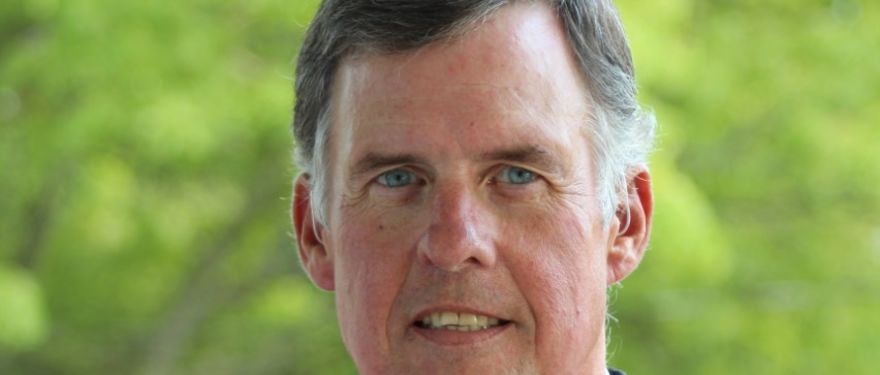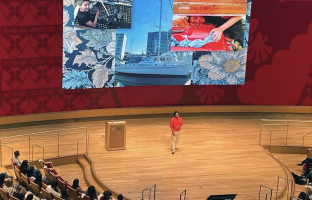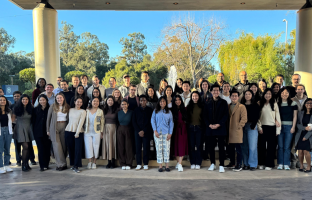In 2015, Steve Kloeblen retired and thought he was done with the corporate world. A graduate of HBS Executive Education’s General Management Program, Kloeblen had more than 30 years of experience with IBM, culminating with his transition from CFO type roles to success as a General Manager and C-suite executive.
“I took a year off to decompress and do some fun things,” Kloeblen explains. As a skilled woodworker, an experienced health coach, and a licensed sea captain, he had many interests to explore and enjoy long subordinated to his career goals.
Yet while he was ostensibly relaxing, his mind was working. With so much time available, how best should he use it? “It occurred to me that I didn’t have to concentrate on one thing, but could have a portfolio-like encore career,” says Kloeblen, “I wanted the flexibility to work on many things.” Further, he recognized that stasis might lead to decline. “I need to keep my professional skills in play, or they will atrophy.”
The path ahead, however, remained unclear. Kloeblen was not sure how his executive experience could translate into one, or multiple, roles, what kinds of roles were available, and how these roles could be effectively pursued.
Moving forward by taking a step back
As an HBS alum, Kloeblen has access to free Harvard coaching through the school’s office of Career and Professional Development. Kloeblen scheduled a phone consultation and prepared to discuss tactical issues such as the general requirements for board participation.
But over the course of two sessions, Kloeblen’s coach took the discussion in a deeper direction. “I was encouraged to slow down and take a step back to ask myself what I was really passionate about,” Kloeblen says. With a different lens in hand, he was invited to review his work history, not for his skills or experience per se, but for those interests, ambitions and activities he was most passionate about.
Looking back, Kloeblen spoke passionately about a social-networking group he had led at IBM. “It was a network of innovators, mostly inside the company, interested in developing solutions beneficial for the ’Base of the Pyramid’ the two-thirds of the world’s population who live on less than two dollars a day,” he says. “The experience had opened my eyes to the power of applying business skills to socially beneficial outcomes while helping future leaders develop their ‘Genuine Leadership Styles – their True North.’”
The recollection helped Kloeblen define two dimensions to his search: that the right role for him would involve collaboration, and that it would be driven by a desire to turn companies into “positive actors” in their communities and to develop future leaders.
Inspired, Kloeblen formed a boutique, “CFO for hire” firm called “C-Street” that built a book of small business clients eager for seasoned financial expertise. Word spread and soon, Kloeblen was leading a small network of freelance CFOs. Then he got call from a large private equity firm to serve as a consulting COO. “It was a big step up in commitment,” Kloeblen says, and that just grew bigger: in January 2019, Kloeblen migrated to a specific portfolio company, Velocity Technology Solutions, a cloud services provider, where he became CEO.
Had Kloeblen simply gone full circle, resuming a role similar to the one he had abandoned upon retirement? In some ways, he had: his new status is built upon the experiences he had acquired in previous roles.
But in significant ways, Kloeblen’s leadership has assumed new and different priorities. Among his first initiatives is “Velocity Cares,” a staff community projects program that organizes offsite charitable activities, such as Habitat for Humanity. In addition, Velocity rewards employees with $1,000 cash contributions to their charities of choice and peer to peer ‘flash’ awards of Kiva gift cards which provide crowd sourcing in micro-financing.
“As CEO,” Kloeblen says, “I’m responsible for the culture, for defining what’s important. We can do more than just make money; we have a responsibility to act positively in our communities.”
Kloeblen believes the consequences of his program go far beyond its immediate material benefits. “Frankly, we’re beating the drum, demonstrating that empathy allows us to relate to each other on a more informal basis, driving collaboration and innovation. If you can get people passionate about something beyond just themselves, you kindle common interests and collective enthusiasm, a powerful esprit de corps to unlock their collective genius.”
Coaching did not lead Kloeblen to a role dramatically different from his previous experiences. But it did recast his leadership in a new mold. “I’m embracing a genuine way to lead,” Kloeblen says. “I want to give my team experiences that inculcate social responsibility, that make it OK to help others, not just the bottom line. I believe that will help build a culture to continue to fuel our growth plans.”





.png&w=80&h=80)

.png&w=80&h=80)